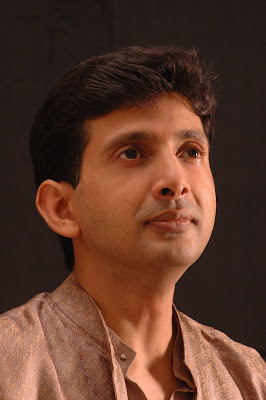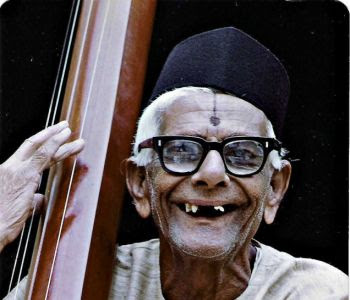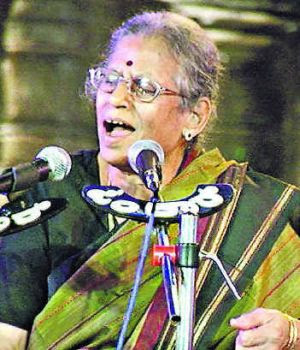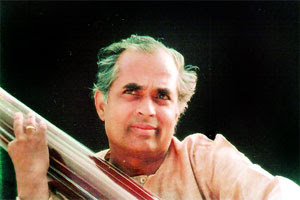
Profile
Born on 16th October, Hemang Mehta comes from a family of Gujarati businessmen, steeped in culture, religion and music. Soothing strands of music fell on his ears from infancy, ever since he can remember. Inspiration came from the priceless music played around him of Padmabhushan Pandit Jasrajji. He received intense training from his Guru Sri Chandrashekhar Swamy under the strict guidance of Pandit Jasrajji as a result of day to day association with the maestro. Inspiration turned into ambition under the encouragement given by his parents. This ambition to reach the pinnacles of our rich musical heritage in turn, sparked off a burning desire to get high class training and untiring “riyaz” right from the tender age of nine .
Hemang’s family’s deep love for Indian music has allowed him to devote himself passionately in the pursuit of music as a career. Hemang’s music is an extension of his personality and philosophy viz. to reach out to God through singing, as he truly believes in ‘Naad Bramha’. This is why Hemang practices a very high degree of professional ethics.
A product of the time tested ‘Guru- Shishya Parampara’ but imaginative and creative enough to exploit the freedom within discipline, innovation within tradition, which is what our music is really about, this sincere young man strikes a most appealing balance between intellectual sensitivity and aesthetic creativity. Thus, he is most highly emotive and communicative.
Hemang excels in the high watermarks of the ‘Mewati Gharana’ such as ‘meend, layakari, kan-gayaki’ and proper bandish presentation. He has several awards to his credit such as the ‘Surmani’ award. He has performed widely in India as well as abroad, at prestigious festivals and has received a good press all over.
Training
It was Padmavibhushan Pandit Jasrajji's priceless music played around me that allowed me to eventually visualize devoting my life to music.I have been receiving training under Shri Chandrashekhar Swamy, a very senior exponent of the Mewati Gharana. Shri Chandrashekhar Swamy trained with Pandit Jasrajji from the 1960s to the 1980s. Chandrashekharji has performed at several prestigious festivals across India like the Tansen Sangeet Samaroh, Sawai Gandharva Sammelan.
I have been very fortunate to be training under him since the tender age of 8. Chandrashekharji stayed with us for two years when I was in my teens, during which I received intensive taalim. We would wake up everyday to start practice at 5 AM and our practice sessions would continue throughout the entire day, often until late at night. On certain mornings when I failed to get up at 5 AM, he was loving enough to wake me up to train. He was very patient with me during our lessons and would teach each intricate phrase several times until I was able to reproduce it. Through Chandrashekharji, I was able to imbibe the salient features of the Mewati Gharana, including Pandit Jasrajji's diverse repertoire of ragas. Chandrashekharji is an extremely affectionate Guru who has continued to mentor me during every stage of my musical journey.
My family has been extremely fortunate to be associated with Pujya Guruji Pt.Jasraj Ji for more than 30 years.It was Pujya Guruji who placed me in the very caring hands of Pt.Chandrashekhar Swami , to initiate me in this celestial art called Hindustani Sangeet.
Through the years while I was training with Chandrashekharji, I also received continued guidance from the maestro, Pandit Jasrajji. I have had many opportunities to accompany him in his performances both within India and abroad. He included me in all his training camps which would sometimes last for up to a month.
Once when I was 18, I was practicing at home in the late morning. Pandit Jasrajji visited our house at that time and advised me to practice music at 5 AM in the morning. Ever since, I made it a habit to wake up early at 5 AM to start my morning riaz.
Performance (Concert)
Harvallabh Sangeet Samaroh, Jullandur 2000, 2009
Sawai Gandharva Sangeet Mahotsav, Kundgol 2002
Sangeet Kala Manch, Pune 2003
Deval Club Kolhapur 2004
Ganvardhan Pune 2005
Dadar Matunga Cultural centre Mumbai 2007
Pt.Jitendra Abhisheki Mahotsav Panjim 2007
Mewati Gharana Sammelan, Bhopal
Baithak, New Delhi
Swar Vilas, Vadodra
Nrityagram's Vasanthabba, Bangalore
Swar Sangam, Surat
Motiram Sangeet Natak Academy, hyderabad
Jhankar Music circle, Kolkotta
Swaranjali, Gulbarga
Pune Festival Sept.2008
Concerts Abroad
Milap Festival England
Bharatiya Vidya Bhavan England ( As a Music Teacher At Summer School 2000-01)
Lotus Festival, New York, Detroit, Cleveland, Toronto etc.
Series Of Concerts In USA and Canada
Upcoming Tour Canada-USA July-Sept.2010
Vandana Somaia Performing Raag Malkosh With Hemang Mehta (November 12th 2009)
Website : http://www.hemangmehta.org/
Contact
Name/Address
Hemang Mehta
703 Oriole
Nyati Enclave
Mohamad Wadi,Hadapsar, Pune - 411028
Maharashtra, India
mehtahemang@hotmail.com
hemangmehtavocal@gmail.com
Phone/Fax
Tel: +91 20 26802364
Mobile:- +91 9892376806









